President hails Samora legacy at Mozambican community event in Switzerland
CIP Mozambique Elections | Analysis: Can Celso Correia help Frelimo win key municipalities?
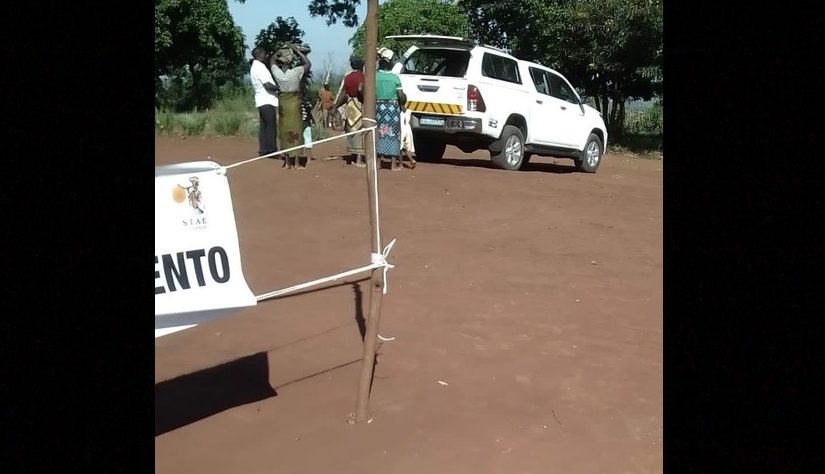
Mozambique Elections, 1 May 2023
- Analysis: Can Celso Correia help Frelimo take back key municipalities?
The man behind Frelimo’s spectacular but controversial win in 2019, Agriculture Minister Celso Correia, has been named national head of Frelimo’s municipal election campaign. Frelimo won in every district in 2019, and President Filipe Nyusi increased his vote by 1.8 million compared to 2014 – widely seen as impossible.
EU observers in their 12 February 2020 report made clear they did not believe the results. “There was an astonishing reversal of results in opposition stronghold provinces of Sofala, Nampula and Zambézia and in opposition districts within the provinces of Manica, Tete and Niassa. … Such sudden, targeted, and significant shifts in voting preferences, strictly limited to opposition districts and contradicting the 2018 municipal election results, are highly unlikely.”
Correia’s success is due to his management style, which is unusual for Frelimo. He gives people targets, but does not give detailed instructions as to how they are to be met; he does not micromanage. It made him popular in the Environment Ministry and now in Agriculture. His staff believe they are trusted to complete tasks. The feel of the ministry is different, too. When Correia walks through a work room, people do not stand up but continue working. Some of Frelimo protocol has been abolished with a goal of getting the job done
Elections were normally run from the party headquarters in Sommerschield, but Correia moved the 2019 election headquarters to offices at one of his private companies on Av Julius Nyerere. He wanted to name his own staff, and apparently did not want Frelimo bigwigs coming into the office giving orders.
The next step was to go to the districts where he gave the local Frelimo head two simple targets – Nyusi must win in every district with at least 10,000 more votes than in 2014. How this was done was left to district staff. Of course, it would have been best if they genuinely mobilised 10,000 more voters across the district. But it was made clear that the target had to be met, however it was done.
And, indeed, different methods were used in different places. In Gaza, which votes overwhelmingly for Frelimo, 1,166,001 people were registered, which was 329,430 more people than the voting age population of Gaza, 836,581, according to the 2017 national population census. Both the head of the National Statistics Institute and the head of the census were dismissed for refusing to bend the census numbers to match the registration. In Zambézia, which normally votes for the opposition, registration numbers were supressed. There was widespread ballot box stuffing in Gaza and Tete. In other places votes for the opposition were invalidated. In Nampula, Zambezia, Tete and Gaza, electoral observation was blocked.
In our newsletters of 10 November 2019 and 26 January 2020 we identified at least 557,000 votes improperly given to Nyusi or taken from the opposition, as polling station staff tried – and did – meet Correia’s targets.
And there was suspicious intervention at national level. The National Elections Commission changed the results repeatedly, and were caught by this newsletter and other press at least four times. For example, the CNE found 152,000 more votes for parliament (AR) than the district election commissions reported, but never admitted they added these votes or said why or where. Even the Constitutional Council was involving, posting three different versions of the final results, but never saying they had been changed – the changes were only picked up by this newsletter, and all three versions are posted on the CIP Elections website.
Correia was also involved in municipal elections in 2018, where local initiative was clear. In Moatize, Alto Molocue and Matola, the Frelimo majority of the local election commission did a secret recount which gave victory to Frelimo, and was accepted by the CNE and the courts. In Marromeu the police took ballot boxes which were counted in secret; a partial rerun was ordered and votes were counted from 2406 “ghost” voters – enough to have required queues at those polling stations all day, but there were no queues.
So Frelimo’s head of elections has quite a track record. But his problem will be harder this time. In 2018 there were 53 municipalities, and Frelimo won a majority of seats in only 39. Renamo won a majority in 7 and MDM in 1, while in 6 assemblies no party had a majority. The opposition won four big northern and central cities: Nampula, Nacala, Quelimane and Beira.
Nampula province is the biggest problem for Frelimo – of 7 municipalities, Renamo won 4, there was no majority in 3, and Frelimo had the majority in only one. Frelimo is sufficiently worried that it has given Correia a second job, as head of its election machine in Nampula province. But in 2019 he was successful there.
In Nampula province Frelimo won three key municipalities in the 2019 national elections that it had lost in the 2018 municipal elections:
- In Nampula city the Frelimo vote doubled and the opposition vote halved,
- In Nacala Porto, 9000 opposition votes disappeared and Frelimo gained 4000, squeaking through on a 600 vote majority, and
- In Ihla de Moçambique the MDM vote fell from 1800 to 300, while the Frelimo vote jumped from 6000 to 10,000 (Renamo held its share).
Renamo made official protests about polling station staff invalidating Renamo ballot papers in both Nacala Porto and Ihla de Moçambique.
Now the order is that Frelimo must win every municipality. Will Celso Correia succeed?
- Local initiative already increasing Frelimo voters
The first week of registration showed Frelimo’s district officials using their initiative to meet the new targets. There have been enough confirmed reports to show a clear pattern of bringing in Frelimo supporters from the district, but living outside the municipalities, to register inside the municipality and able to vote for Frelimo there on 11 October. (The photo below shows the car of the Gurue mayor, which has brought these people from Nacucue to Gurue to register, 27 April).
Groups are being taken to register by the Frelimo party secretary and jump the queue. They are all registered before the people waiting in the queue, who must come back later. Groups are being sent to register, such as all teachers at a school being told to register at the registration post in their school, and not at the post nearest their home.
And groups are being registered at night, outside the normal hours. A clandestine registration post was discovered in a STAE warehouse in Gurue. A decade ago Renamo demanded that the right to appoint deputy directors of STAE, and this was agreed. These deputy directors are usually ignored and marginalised, but in this case the deputy director discovered what was happening.
People can register to vote if two registered electors say they recognise the person and that they are local, but there are complaints of unknown people being “recognised” by Frelimo officials.
Getting more Frelimo voters on the register, legally and illegally, has been reported widely in Nampula and Zambézia provinces, where Frelimo must increase their vote by large numbers to win control of municipalities.
The point of allowing local initiative is that it allows officials to decide how to meet the target, and some are restricting opposition voters. In Nampula city, some young people are being asked for a declaration from their neighbourhood head, who is usually Frelimo. This is a way of stopping young people likely to vote for the opposition from registering. In Chimoio recent arrivals in rented accommodation were stopped from registering. Other tricks are used to block opposition voters.
Will this be enough to meet Celso Correia’s targets in key opposition municipalities?


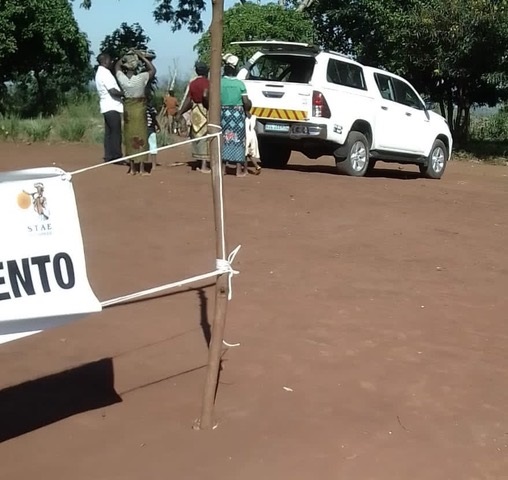
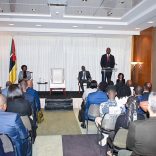
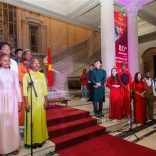

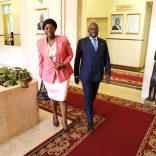
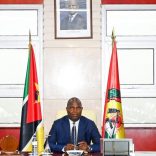





Leave a Reply
Be the First to Comment!
You must be logged in to post a comment.
You must be logged in to post a comment.